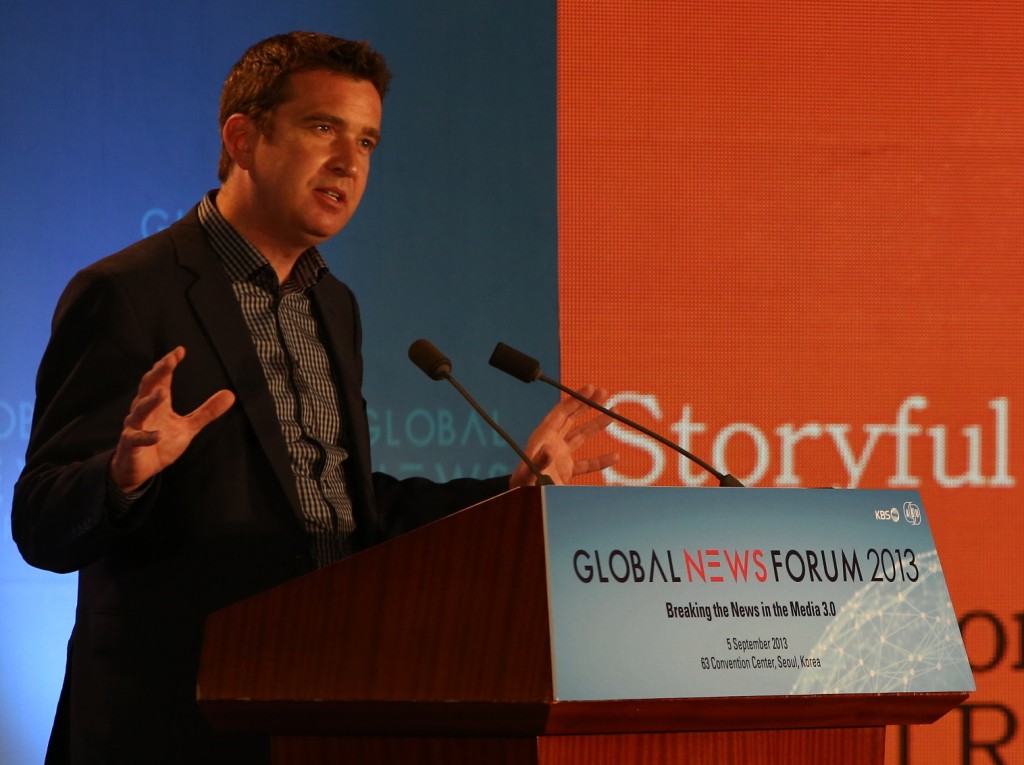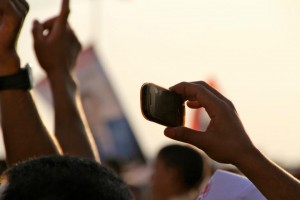Search Results for Tag: facebook
Online comments are being shut down
 One by one, news sites are changing how they deal with reader comments below online articles. Some are choosing to shut down online comments completely. Others have assigned members of staff the task of strictly moderating comments left by readers, and deleting ones deemed inappropriate. And some have begun outsourcing comments all together to social media sites like Facebook.
One by one, news sites are changing how they deal with reader comments below online articles. Some are choosing to shut down online comments completely. Others have assigned members of staff the task of strictly moderating comments left by readers, and deleting ones deemed inappropriate. And some have begun outsourcing comments all together to social media sites like Facebook.
But hang on, don’t editors appreciate reader participation anymore? Well, it seems they do, but they’re tired of combatting racist and sexist comments, vulgar allusions and off-topic discussions that don’t offer any insight or value to other readers (or so they say).
![]() read more
read more
The risks of using Skype, Facebook, WhatsApp and Co.

Graphic: flickr/mmapstone
Most reporters use a whole bunch of different online tools and apps such as Skype, WhatsApp, Facebook, Gmail, Tumblr, Blogger, WordPress and Dropbox to make their work easier. To commemorate this year’s Safer Internet Day, onMedia highlights a few risks associated with some of the most popular journalism tools and suggests possible, more secure alternatives.
![]() read more
read more
People Who Innovate – Mark Little, Storyful
 Irish journalist Mark Little quit his job as a prime time news anchor in late 2009 to found Storyful, a news service with a twist. Like traditional news agencies, Storyful delivers news content to media organizations. The novelty is that this content is culled from social media networks such as Twitter, YouTube and Facebook. Storyful journalists comb social media networks for interesting or dramatic videos, photos or other items. The information is then verified and put into context before being made available to the company’s subscribers (see here for how Storyful verifies stories from Syria).
Irish journalist Mark Little quit his job as a prime time news anchor in late 2009 to found Storyful, a news service with a twist. Like traditional news agencies, Storyful delivers news content to media organizations. The novelty is that this content is culled from social media networks such as Twitter, YouTube and Facebook. Storyful journalists comb social media networks for interesting or dramatic videos, photos or other items. The information is then verified and put into context before being made available to the company’s subscribers (see here for how Storyful verifies stories from Syria).
Three years since it was founded, Storyful has attracted some major clients, including ABC, Al Jazeera and the New York Times, and generated hundreds of articles about its innovative take on news gathering – though the company has yet to break even. DW Akademie’s Kate Hairsine talks to Mark Little about why he started up a social media news agency in the first place, his belief in journalism and why he thinks journalists can make great entrepreneurs.
![]() read more
read more
What role did social media really play in Egypt’s Arab Spring uprising?
 The words ‘Facebook revolution’ come up in virtually every discussion of the protests and political upheavals that swept the Arabic world at the end of 2010 and early 2011. Opinion is still divided though about the exact role that social media played in sparking and sustaining the Arab revolutions. Now, in research that took her to Egypt to extensively interview activists involved in the uprising there, a DW Akademie International Media Studies student has some surprising conclusions on the topic. DW Akademie spoke to Eira Martens about her research.
The words ‘Facebook revolution’ come up in virtually every discussion of the protests and political upheavals that swept the Arabic world at the end of 2010 and early 2011. Opinion is still divided though about the exact role that social media played in sparking and sustaining the Arab revolutions. Now, in research that took her to Egypt to extensively interview activists involved in the uprising there, a DW Akademie International Media Studies student has some surprising conclusions on the topic. DW Akademie spoke to Eira Martens about her research.
![]() read more
read more
Young Vietnamese benefits from studying in Germany
At this year’s Deutsche Welle Global Media Forum, we met up with Danh-Quy Nguyen, a Vietnamese who studied in Germany and now works as the Deputy Managing Editor for ELLE Vietnam. A few years ago, Danh-Quy was one of the first to receive a scholarship for the two-year Master’s program “International Media Studies” at DW Akademie.
You graduated from DW’s International Media Studies program last year. Now, you’ve been invited back as a guest and expert for a panel-discussion at the DW Global Media Forum. How does that make you feel?
Firstly, I feel great and honored to be invited by my teachers and colleagues. I think it’s an experience that not everyone can have. So I feel very happy. Secondly, I’m also very happy to see my old friends and many colleagues from Deutsche Welle.
What do you miss most about Germany?
What I miss most from Germany is lots of trees, lots of green and the Rhine River.
Can you apply the knowledge that you learned at DW to your work in Vietnam?
Of course! I learned a lot at DW and I use it in my work every day. The most important thing I learned from the DW Master’s program is how to communicate with people from different countries and different cultures. This is very important for my daily job. As Managing Editor, I have to communicate with different editors and people from the fashion industry all around the world.
![]() read more
read more
Khmer coverage of Japan’s tsunami
By Raksmey Meas
 Raksmey Meas, assistant lecturer at the Department of Media and Communication at the Royal University of Phnom Penh, reports that Japan’s catastrophe involving the recent earthquake and subsequent tsunami has yet again taken center stage in the world media’s attention.
Raksmey Meas, assistant lecturer at the Department of Media and Communication at the Royal University of Phnom Penh, reports that Japan’s catastrophe involving the recent earthquake and subsequent tsunami has yet again taken center stage in the world media’s attention.
Particularly in Cambodia, news related to Japan and its disaster racked up on front pages for more than a week following the initial shock on March 11th.
Regarding the focus of Cambodian media on this tragedy, news angles seem to be anything on the updates of the situation – death toll, possible nuclear explosion and rescue efforts, etc.
![]() read more
read more
#ugandavotes – the impact of social media in reporting elections
.jpg)
Facebook and Twitter are well established tools of the trade for many journalists but less so in countries such as Uganda. However, the recent elections may well have changed that. In a guest blog post, Ruth Aine a journalist from the Radio station Power FM in Kampala, describes the rise of social media during Uganda's recent elections.
![]() read more
read more
The pros and cons of user-generated content
Radio and TV audiences today don’t just want to be spoken to by broadcasters; they want to join the discussion. They want to share their views and stories, and modern communication tools like mobile phones, digital cameras and the internet give them that opportunity.
Broadcasters who do not grasp this fundamental change in communication behavior may soon find themselves bypassed by social media sites like Facebook and Twitter.
In order to stay relevant, radio and TV stations have to find new ways of integrating the audience into their programming. On the simplest level, this can be done by taking letters and e-mails from the audience seriously. A next level can be call-in programs, which center on listeners’ concerns, questions, comments and experiences.
![]() read more
read more






Feedback